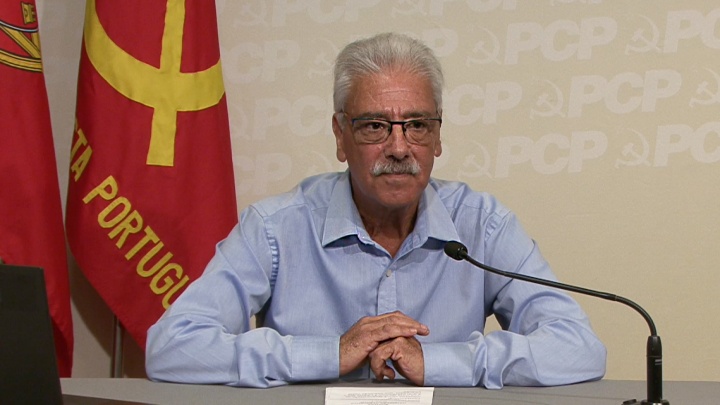The right to adequate housing for all is an imperative and a right enshrined in article 65 of the Constitution of the Portuguese Republic.
A right however, which except during the period of great popular mobilisation soon after 25th. April did not hold the centrality that the Constitution gives it as a universal right by successive governments throughout the 46 years of democracy.
We are now experiencing an exceptional, complex and difficult moment, due to the Covid-19 epidemic outbreak, with thousands of families losing part or even all of their income, either due to the lay-off scheme or because of unemployment. This labour situation, causing anguish and despair due to the expected cut or lack of means for survival, placed more relevance on a set of problems and situations that run cross Portuguese society and that, although they were not born with the epidemic outbreak, gained greater acuity with it.
A few examples:
- The survey by the National School of Public Health denouncing that "a quarter of people from families earning up to 650 euros lost all income";
- A study by the Bureau of Statistics (INE) that concludes that "one in ten inhabitants in Portugal lives in overcrowded accommodation, lacking housing conditions";
- A publication by Caritas Portuguesa which notes that more houses are sold in Portugal but at prices "absolutely disproportionate to the income of the Portuguese". According to recent data, Portugal today has the second highest rate in Europe of home ownership (75%).
- A study by Deutsche Bank “World Prices 2019” concludes that “the inhabitants of the Portuguese capital have to set aside 50.4% of their salary to pay the rent of the houses they live in”.
These are portraits of a shocking process and reality where real estate speculation prevails, either through renting or through the purchasing of a home with a bank loan.
This is the result of submission to financial capital, which, particularly in the metropolitan areas of Lisbon and Porto and in the largest cities in the country's urban network, led to the expulsion of thousands of families to the periphery and the de-characterization of historical centres.
This is the result of a nefarious PSD/CDS government law that led to a full precariousness of renting and the eviction of many thousands of families, rightly deserving the name of the law of eviction. A law that despite the repeal proposals presented by the PCP still remains, albeit with changes and postponements in the application of its most harmful measures.
The aim of what has been stated so far, albeit in broad terms, is to point the dimension of the housing problem in our country.
The housing problem, although transversal and increasingly extended to intermediate sectors of the population, especially affects the most fragile classes and layers, dependent on income from work and with low pensions.
This is a problem that, as the PCP has said, is not likely to be solved through the so-called market, dominated by financial capital and lacking regulation at all levels, from soil to urbanization and from construction to sale and rental
This is a problem that Covid 19, with the increase in unemployment and falling income, has revealed even more and is not solved with palliatives such as the so-called New Generation of Housing Policies by the PS government, or with the attempt to transfer the burden of resolution to the municipalities. The solution will have to go through a clear assumption by the State to promote public housing.
Lastly, without concealing the steps, albeit insufficient, that were possible to take and to which the PCP made a great contribution between 2015 and 2019, for the PCP the question that is posed as the Constitution says and the Basic Law of Housing reaffirms, is the need for the State "to assume the task of ensuring housing of adequate size, in conditions of hygiene and comfort and that preserves personal intimacy and family privacy".
And this implies a stronger intervention by the State in the rental market, with the repeal of the law of eviction, with greater stability and guarantee in the lease contracts, with the limitation of the rent value to 1/20 of the taxable property value, with the mobilization and availability of the public means necessary for the profitability and restoration of the public property with conditions for housing, with the launch of programmes of housing construction for supported, conditioned or accessible rents, with the expropriation of vacant dwellings held by real estate funds and other speculative agents at taxable property value.
